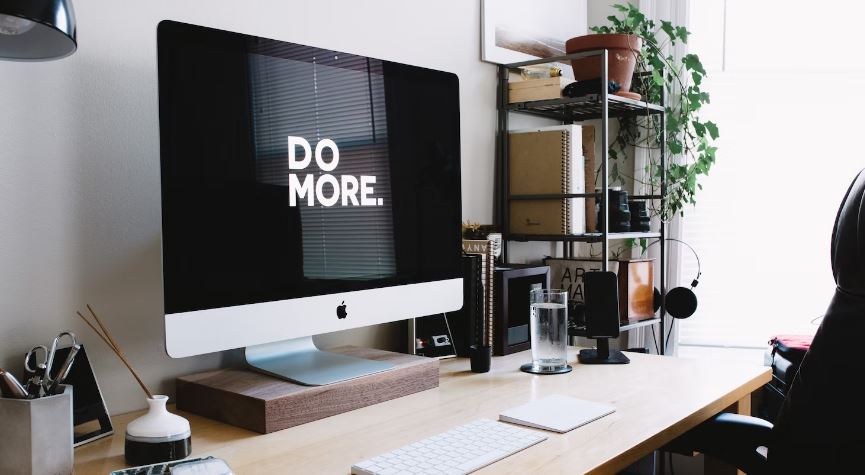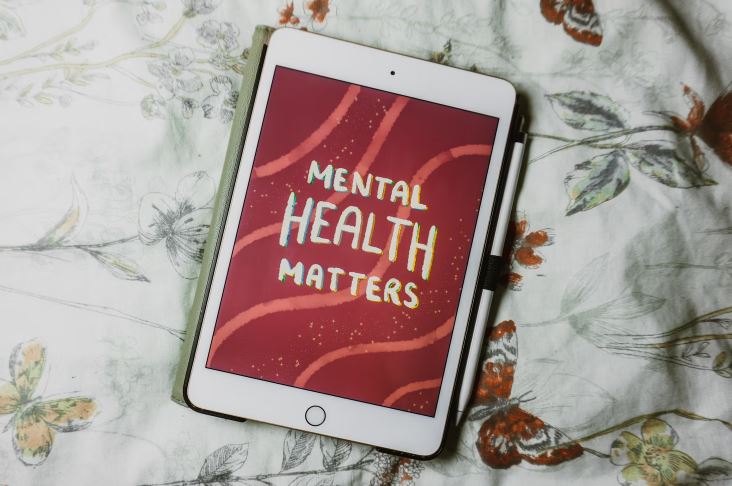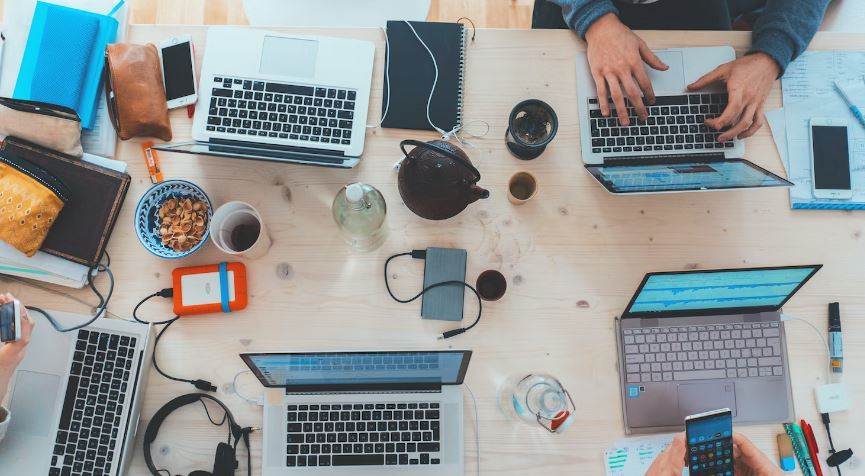Introduction
Technology already permeates almost every part of our lives. Thus, a “digital detox” has become increasingly popular. Living in the most connected era in human history offers numerous advantages, including connecting with distant family members and having access to practically any query you might have. However, using technology excessively might have unforeseen repercussions. This includes spending too much time on social media, smartphones, or other digital screens. More exposure to technology indicates the need for a digital detox. Overusing technology can take time away from critical well-being activities like sleep, exercise, and socializing.
According to a literature review, excessive use of technology has been associated with increased symptoms of attention deficit disorder, diminished emotional and social intelligence, technology addiction, social isolation, decreased brain development, and, in some circumstances, interrupted sleep. To achieve balance and mindfulness, a digital detox is purposefully cutting off from electronic devices and internet platforms for a predetermined amount of time. This routine provides a much-needed break from the constant barrage of messages and information that frequently becomes overwhelming.
What is a Digital Detox?
You may frequently catch yourself, just like millions of other people do, scrolling aimlessly on your smartphone screen as hours pass. According to research, 61% of adults depend on the internet and electronic devices. However, this continual connection might degrade your quality of life and overstimulate your senses. It makes sense that more and more individuals are seeking a digital detox to take control of their mental and physical health at a time when we are inundated with alerts.
As a result of people’s reliance on technology in their daily lives, it can be a challenging process for many people. We might even assert that most people in today’s culture are addicted to technology. It is significantly beneficial for your mental and physical health to vacation from your various social media apps and spend some time away from your screens. A digital detox can help with that. You deliberately cut back on the time you spend online on your gadgets during digital detox. Even choosing to disconnect from the entire social world entirely is an option.
A digital detox is a period of abstinence from using technology, including social media, smartphones, televisions, computers, and tablets. It’s common to think of “detoxing” from digital devices as a means to concentrate on in-person social interactions without interruptions. People can release the stress from continual connectivity by temporarily giving up their digital devices. It may be time to take a break even if you don’t become twitchy when your electronics run out of battery life or have eyestrain, migraines, or neck pain. You can begin regaining the real-life experiences that all those devices steal from us daily by occasionally disconnecting.
Why Do You Need Digital Detox?
There are a variety of reasons you should put down your phone and other electronic gadgets temporarily. You should enjoy some alone time without the constant distractions that your phone and other devices cause. In other situations, you can feel that excessive technology use makes your life too stressful. You might even experience occasional feelings of technology addiction. Many specialists think excessive use of technology and devices is a tangible form of behavioral addiction that can result in issues with the body, mind, and society. Here are a few reasons why we should start taking a break from excessive use of our digital devices.
1. The Problem of Digital Overload
The degree to which technology now infuses our lives is unparalleled. We can stay connected, informed, and entertained all the time thanks to smartphones, tablets, computers, and other technologies that have evolved into extensions of ourselves. But the steady stream of emails, messages, and social media updates can cause digital overload. This phenomenon frequently adversely affects productivity, stress levels, and concentration.
2. The Need for Balance
As a response to the desire for balance in our technologically advanced lifestyles, digital detoxes have become popular. Individuals seek to recalibrate their connection with technology and recover control over their attention and time by purposefully unplugging from screens and digital platforms. People prioritize in-person conversations, exercise, and quiet times of introspection while on a digital detox.
3. Digital Technology Can Interrupt Sleep
There is evidence that excessive device use, especially before bedtime, can affect the period and quality of one’s sleep. According to one study, children who often use gadgets before bedtime sleep much less and has a worse sleeping experience. The study also discovered that having a higher body mass index is closely link with engaging with gadgets during midnight. According to researchers, electronic social media use in bed has been shown to affect mood negatively. Utilizing social media before going to sleep increases the risk of anxiety, insomnia, and a shorter sleep span.
4. Being Content Is Difficult Due to Social Comparison
If you regularly use social media, you will likely compare your life to your friends, family, complete strangers, and celebrities. Based on how you see other people’s Instagram or Facebook post, you start to believe that everyone else is living a fuller, richer, or more exciting life. As the phrase goes, comparison can steal your joy. An excellent strategy to concentrate on what matters in your life without comparing yourself to others is to withdraw from your social ties.
5. Digital connectivity may make you feel you need to catch up
The anxiety that you are missing out on the experiences that everyone else is having is known as FOMO. Continuous connectedness may feed this fear. It’s possible to feel your life is less intriguing than someone else’s whenever you see a carefully chosen photo or post about their lives. For fear of being left behind, you can overcommit to social events. Additionally, FOMO can make you continually check your device out of concern that you won’t see a crucial text, DM, or post. Setting boundaries and lowering your fear of missing out are possible outcomes of a digital detox.
Tips for Effective Digital Detox

Detox is not limited to cleansing the body; more than anything, your mental health deserves a respite from the rigors of the modern digital age. So that you may appreciate your connected devices rather than becoming overburdened by them, you should complete a digital detox challenge periodically. Each person’s digital detox will be different. Still, regardless of your circumstance, it’s critical to assess your screen use for purposes other than those that are strictly necessary. The areas where you’ve recognized screen use as contributing to stress and anxiety are where you want to cut back. Here are some helpful tips for an effective digital detox.
1. Consider the benefits you intend to get from a digital detox
Reducing your digital usage involves more than just getting back a few minutes. You might feel overburdened by stress, obligations, caregiving, employment insecurity, childcare, and other constraints. This shortage of space may be made worse by constant connectivity to devices. You may create the time you require for self-care, the time you spend on email, social media, television, and other digital media.
2. Regain the ability to entertain yourself without the help of a blue light from the screen
Go back to the Zen route and figure out how to do nothing to amuse yourself. Practice being still and controlling your thoughts. Give your mind a few moments during the day to roam, take in the surroundings, and enjoy where you are in the moment in the actual world, not the digital one. Meditation, without the aid of an app, is a terrific method to clear your head, just like simply “spacing out.”
3. Disable push notifications
When your mobile devices are constantly pinging you with push notifications, it can be challenging to ignore them. Therefore, a quick fix to start your digital detox challenge is to turn off push notifications for unused apps. However, you could still require a real-time alert for your boss’s email. Select the notifications that are most significant to you. Then, set aside some time to look for those less urgent upgrades on your other platforms.
4. Practice “lights out” in the evenings and mean it
To support your physical and emotional wellness, you must set up a nightly digital sundown. The generation of melatonin, the quality of sleep, and mood were discovered to be affected by those devilish devices that we love so much. Because of this, we may sleep less soundly due to our constant connectivity, which, over time, may promote the growth of various serious health issues. As in detoxing every night by removing all electronics from the bedroom, embrace the darkness to assist your body in getting the rest it needs.
5. Plan Screen-Free Time Through
Trying to avoid screens when your work involves the use of computer most of the time is challenging. Hence, prioritizing breaks is even more crucial. Remember to take a stroll or eat lunch somewhere other than your desk, schedule a time in your calendar or set the alarm on your phone, advises Becker. Also, remember to put your phone away.
6. Be realistic when setting your goals
Try if you can go completely offline for a period. Some people may find it freeing and reviving to be entirely cut off. In contrast, many people may need help to entirely give up all digital contact, especially if they need to keep connected for jobs, education, or other obligations. If your employment requires you to use your devices all day, consider performing a mini detox after the workday. Decide on a time when you want to switch off your gadgets, and then concentrate on having a night without using social media, texting, watching online videos, or engaging in any other technological distractions.
7. Delete unimportant and distracting applications from your phone
Eliminate distractions by switching from your smartphone to a basic cell phone that does not support apps if you have problems remaining present. Downgrading from a smartphone can be helpful. You may have basic call and texting applications and other apps that are crucial and necessary for your everyday tasks and your job.
8. Use only one gadget at a time
Consider this tactic as a “lighter” version of a digital detox. Start by limiting yourself to one gadget at a time rather than completely cutting yourself off from technology. If you’re used to multitasking while connected to the internet—watching TV while scrolling on your iPad, for instance, or texting while on Zoom calls—challenge yourself to focus solely on one connected experience. At first, it could be challenging to focus, but with a bit of practice, you might feel more in the moment and less distracted.
9. Return to the basics by using paper and pen
Take a break from your screen’s blue light radiating, and occasionally, use a pen and paper. Even though it may feel unusual initially, doing so will offer your worn-out faculties a workout that differs from what they are used to, and it might even help them create new neural pathways. Whatever inspires you, take notes, scribble during uninteresting meetings, or compose a love song instead of frantically, pen and paper tapping and typing can make you feel physically and mentally liberated in a way that the digital world cannot.
10. Stop your email and become a little less social
Social media platforms like Facebook, Twitter, and Instagram may keep us all linked and help us feel like we are a part of a larger community. Still, they are also significant time and attention wasters. Reduce social media usage if you want to regain control of your online life. Check-in once in the morning and once more at night, then end the day. People who regularly read 200 to 300 emails a day believed they had “adult-onset attention deficit disorder,” which caused them to feel stressed out. They needed help to concentrate on concentrating in between email pings.
Benefits of Digital Detox

In recent years, the concept of “digital detoxing” has gained popularity among those looking to escape the overwhelming idea brought by the 21st century. Our emotional and physical health can both benefit from a break from technology. While many of us may sense the need for a digital detox, it can be not easy to modify our behaviours, especially when we’re bombarded with chances to connect online and use more technology. One easy way to get started on a detox is to think about all the good things it will do for you, like better sleep, less stress and anxiety, more productivity, better relationships, and mindfulness. A digital detox can also help us become less reliant on technology and foster healthier connections. Let’s examine each of those advantages in more detail.
1. Less Stress
Anxiety-inducing websites, apps, news headlines, or online connections should be avoided. It can be beneficial to remember that your stress, anxiety, and attention to these issues are unlikely to result in constructive change. However, cutting back on screen time and doing self-care or daily duties will have a beneficial immediate impact, lower stress levels, and minimize some drawbacks of excessive screen use and dependence.
2. Enhancing your Health and Sleep
A healthier sleep cycle is the primary advantage of disconnecting from technology. Many people check their social media notifications before going to sleep and as soon as they wake up. Although the act may appear insignificant, it puts much strain on our sub-conscience. In our beds, we feel connected, keeping our minds from sleeping at night. And the quality of our sleep is hampered by this internal stress. Digital detoxes have several additional health advantages besides promoting better sleep. Your physical and mental health will benefit from not staring at screens nonstop, increasing your exercise, and cooking at home because there are no delivery apps.
3. Enhanced productivity
Without the frequent pings from our devices, we can sharpen our focus and work more efficiently. People frequently discover that they can focus more intently on activities and accomplish more in less time when they are not distracted by their digital devices. We can accomplish that by doing away with distractions and using technology less. This may lead to a sense of accomplishment and less stress.
4. Getting Rid of Comparisons
The ability to eliminate comparisons is another significant perk of digital detox. We constantly see and hear about other people while on-screen. We observe a person who is attractive, successful, and intelligent. Inspiration is essential, but comparisons are typically damaging. Social media platforms constantly bombard us with norms, expectations, and role models. We cannot compare ourselves to others because no one can live another person’s life. We can become a better version of ourselves by strengthening our bodies, picking up new languages, and tackling professional obstacles. Still, we can never change into someone else. You can temporarily forget about other people by engaging in a digital detox. And all possible comparisons will be rendered useless by this happy ignorance.
5. Having control over your time
Despite this, we spend more time using technology today than ever before. The digital world is essential to our daily lives and jobs, yet much of our screen time goes above and beyond what is necessary. Finding out how much of your technology use is necessary, fun, and harmful is one of the most significant advantages of a digital detox. From there, you may take action to cut back on your usage of technology, which will ultimately free up time that you can put to good use.
Conclusion
Our emotional and physical health can benefit significantly from technology; we may foster mindfulness, boost productivity, and enhance by lessening our reliance on technology relationships. Studies have shown that a digital detox can improve sleep, boost creativity, improve cognitive function, and reduce stress and anxiety. Our overall well-being and promoting a healthier lifestyle can be enhanced by taking a vacation from technology and retraining our brains to find joy in other activities.
It makes starting a digital detox less intimidating to remember that it doesn’t have to involve giving up all the technology we use and love daily. Instead, a digital detox should be seen as a method to change how you interact with technology so that it only serves to make your life easier and more enjoyable, not to get in the way of other activities. The first step in starting a digital detox is becoming aware of your technology use.
People may need a digital detox or a break from using digital technologies for various reasons. One apparent reason is that prolonged use of these gadgets can wear one out and trigger compulsive habits. The need for a digital detox may also arise from other factors, such as suffering withdrawal symptoms when utilizing modern technologies, developing a technology obsession, or simply wishing to unplug social media and its never-ending streams of information. While some would consider a digital detox, many compelling reasons exist to focus on things other than technology.



